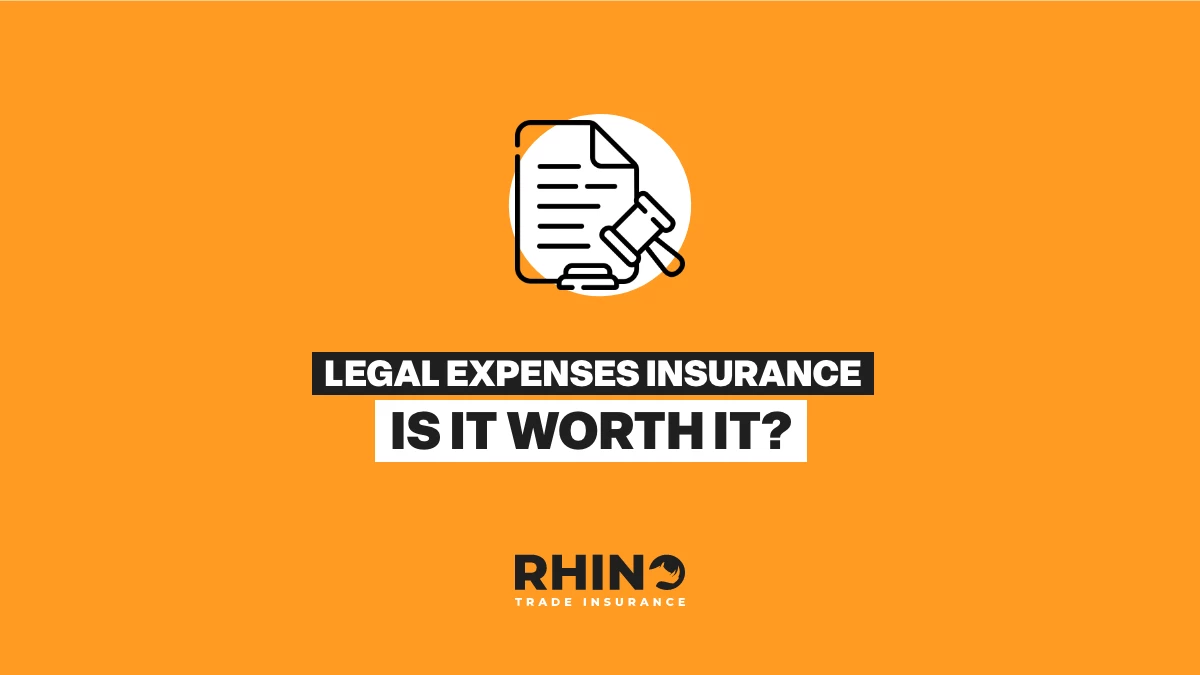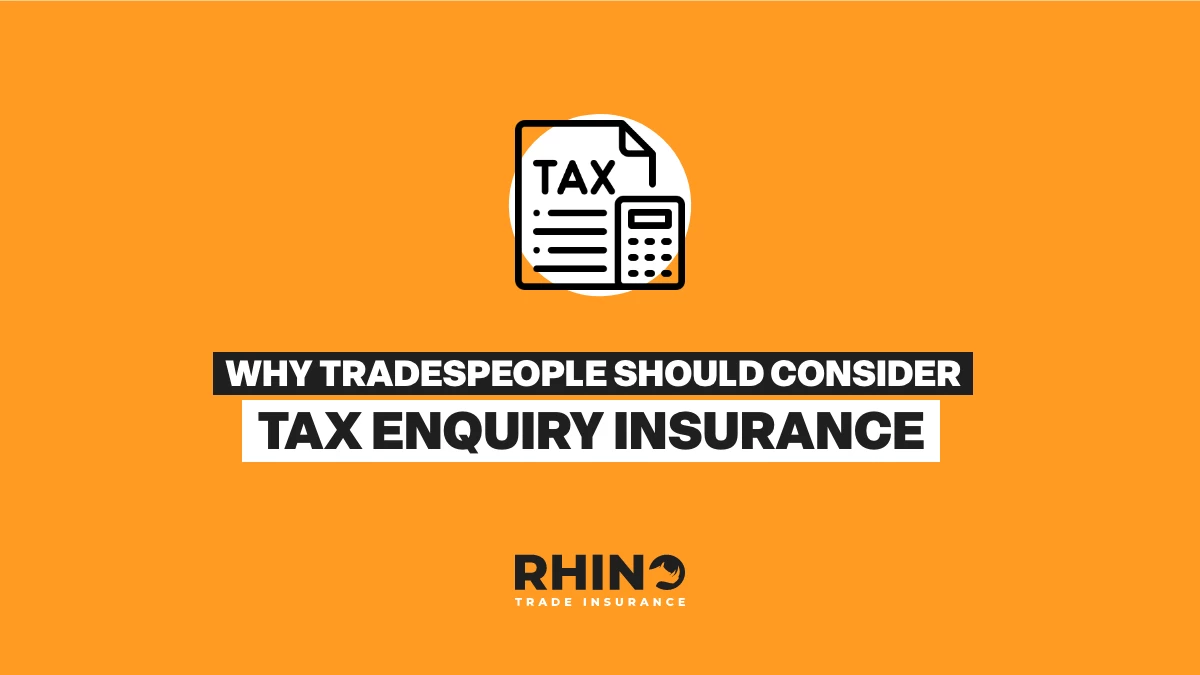
Legal Expenses Insurance – Is it Worth It?
Legal Expenses Insurance for tradespeople explained—what it covers, when you might need it, and how it protects against costly legal fees.
The electrical industry is booming right now, and reports show that the demand for electricians is far outstripping the supply. With older technologies becoming obsolete and newer ways of getting our energy and power being implemented, electrical businesses are at the forefront of a nationwide scheme to regenerate the way we power our lives.
For qualified Electricians, this is music to your ears if you are considering setting up a trade business. All we can say is the time is now!
Let's spend the next five minutes exploring how you go about starting an electrical business, from writing a business plan to which insurance you need.
As a qualified Electrician, launching your own business can be one of the most exciting times of your career. Your first step should be to write a business plan that includes every avenue of information surrounding your proposed business. A business plan is useful for various reasons, ranging from applying for a bank loan to ensuring you stick to your business goals.
Think of a business plan as your company's roadmap and where you aim to be at certain moments in time. They will highlight areas such as what your business will do, how it will operate and function, your mission and goals, and how you aim to achieve them.
For any Electricians looking to write a business plan, you should include the following:
Describe your business
Every Electrician's business plan should begin with a brief overview of what your business does. This helps anyone who reads the document to instantly understand who you are and what your business does. It can be fairly basic and start with the name of your business, your history in the trade, your location, what services you will offer and who your customers are.
Research your market
For anyone looking to gain investment or take out a loan for set-up costs, you must include some market research. Analysing who your customers are and where they are will help the reader understand your customer base's size and scope.
In this section, you can provide information on your target clientele by including their proposed net worth and how your business will fulfil their needs. A business should also conduct a competitor analysis of the local area to understand how many Electrical tradesmen and women operate and what their prices are.
Planning your finances
Banks and investors will want to see your financial plans for your business and how you aim to keep the doors open. This will require projections on your costs, including your initial start-up costs and projected sales in the first year/ two years of your business.
If you are seeking to start your business with a loan from a bank or investment from family or friends, your forecasted finances should clearly show how you intend to repay the loan, with costs fully explained. Here, you could seek the help of a financial professional to help you with your cash flow.
How to market yourself
Electrical business plans need to include the strategies you will deploy to reach your chosen market. As you are just starting your trade business journey, this doesn't need to be elaborate, but you should focus on where your efforts would be best spent to build up a following.
Whether you propose building up your social media profiles, advertising in the local newspapers or leaflets or simply through word-of-mouth, your plan should include ideas and examples of how you aim to get your business 'out there'. Tradespeople often include ways to show off their brand logo. By wrapping your van, having custom workwear and printing business cards, you have a simple yet effective way of marketing your business.
We wrote a handy guide on business plans for tradespeople.
Once you have a clearly written business plan, your next step is to explore types of set-ups for your company. This refers to how you wish to run your business and includes four main categories:
Electricians commonly chose to set up as sole traders before eventually transitioning to a limited company due to increased growth. There are differences between each business set-up, the most prominent between a sole trader and a limited company being the financial liability. Sole traders operate under one banner and control the company 100% themselves, meaning that any liability for the business falls squarely on their shoulders. Limited companies, however, separate the liabilities of the individual owner and the company, hence the term 'limited'.
There are various pros and cons to which type of business set-up you choose, and it all depends on your circumstances. Researching the differences before making a decision is imperative, and fortunately, Rhino has written all about them in this guide to becoming a self-employed tradesman.
Electricians not only need the correct qualifications to do their job, but they also need specific tools and equipment. This is so your business can operate in a safe, effective and compliant manner. You may already own the equipment needed, so you can skip this section. However, if you don't, this will require some investment when setting up shop.
When starting out, take stock of everything you own and consider the potential scenarios you could find yourself in and what equipment you need.
Of course, you will find gaps in your tool kit, but remember to consider your equipment as well. Things to consider will include a van, ladders, health and safety equipment and more. Ensuring your business has the right materials to do your job is vital to building and maintaining a professional approach to your work. The costs for sourcing and purchasing these tools and equipment should be priced into your business plan.
Accidents and risks always happen in the electrical industry, and even the most astute tradesperson should hold the right level of trade insurance for any unforeseen events. Sufficient financial protections make business sense and are critical to ensuring your business survives and thrives if something goes wrong.
Rhino offers a variety of cover options that will benefit your Electrician's business; our packages can be built with the following:
This protection is intended to safeguard your business if a member of the public suffers an injury due to your work or if you cause accidental death or damage to a third party or their property. At Rhino, you can choose to insure your business from £1 million to £5 million. Learn more about how our Public Liability can protect your business here.
Employers' Liability Insurance
This insurance policy is legally required for any business in the UK that hires staff. It offers protection that safeguards you should an employee get ill or injured due to the work you set for them. Without Employers' Liability Insurance, your business is taking a major gamble and risks fines of up to £2,500 every day you operate without this cover.
Learn more about Employers' Liability Insurance here.
Professional Indemnity Insurance
If your business offers professional services resulting in a client suffering from financial loss due to neglect and oversight, your business may be liable. Professional Indemnity Insurance will cover you if a customer claims against your business. Read all about this insurance on our website today.
If your tools are ever stolen, damaged or lost, you can insure against these risks. Rhino's policies offer protection whether your tools are 'in transit', 'loading/ unloading' and 'whilst in transit'.
You can also add many other valuable business insurance products to your policy suite. Rhino has created tailored solutions such as Personal Accident Insurance, Contractors' All Risks Insurance, Income Protection, Legal Assistance and many more.
There we have it, a comprehensive guide on what you need to do when starting an Electrical business. For more information on our award-winning insurance, call our fantastic team on 0116 243 7904 to get your next quote, or simply contact us and get a price for your trade insurance in 60 seconds.
Legal Expenses Insurance for tradespeople explained—what it covers, when you might need it, and how it protects against costly legal fees.
Worried about a tax investigation? With HMRC cracking down in 2025, Tax Enquiry Insurance from Rhino gives UK tradespeople expert protection and peace of mind.
Rhino Trade Insurance CEO Troy Stevens joins industry leaders at the House of Commons to discuss the rising issue of tool theft—highlighting its impact on UK tradespeople and the importance of awareness and protection.
Tell us your trade and get a tailored insurance quote for your business in seconds
Our team of experts are available to talk to Mon-Fri 08.30-17.30 and Sat 10.00-14.00

